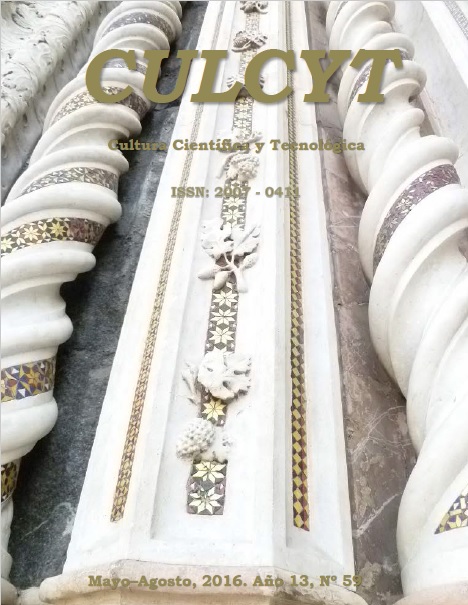Experiencias emocionales de estudiantes universitarios en la clase de cálculo I
Palabras clave:
Emociones, OCCResumen
En el proceso de aprendizaje/enseñanza de la matemática interfieren un sinfín de variables, las cuales determinan el aprendizaje significativo de los estudiantes, entre estas variables se encuentran las variables afectivas. En esta investigación se abordó la temática de experiencias emocionales, teniendo como principal objetivo dar a conocer las emociones que un estudiante vive en un aula de clases, así como relacionar el contenido matemático con dichas experiencias.Descargas
Citas
Callejo, M.L. (1994). Un club matemático para la diversidad: Narcea.
DeBellis, V. A., & Goldin, G. A. (2006). Affect and meta-affect in mathematical problem solving: A representational perspective. Educational Studies in Mathematics, 63(2), 131–147.
Gómez Chacón, I. M. (2000). Matemática emocional [Texto impreso]: los afectos en el aprendizaje matemático.
Goldin, G. A., Epstein, Y. M., Schorr, R. Y., & Warner, L. B. (2011). Beliefs and engagement structures: behind the affective dimension of mathematical learning. ZDM, 43(4), 547-560.
Goldin, G., Rösken, B., & Törner, G. (2009). Beliefs—no longer a hidden variable in mathematical teaching and learning processes.
Beliefs and attitudes in mathematics education: New ….
GUERRERO, E. y BLANCO, L. Estudio preliminar sobre la influencia de las emociones y los estilos cognitivos ante la tarea académica. En M.I. Fajardo, M.I. Ruiz, A. Ventura, F. Vicente y J.A. Julve (Ed), Psicología de la educación y formación del profesorado (pp.547-557). Badajoz: Psicoex. 2002.
Hannula, M., Evans, J., Philippou, G., & Zan, R. (2004). Affect in Mathematics Education--Exploring Theoretical Frameworks. Research Forum. International Group for the Psychology of Mathematics Education.
Hannula, M. S. (2012). Exploring new dimensions of mathematics-related affect: embodied and social theories. Research in Mathematics Education, 14(2), 137–161. doi:10.1080/14794802.2012.694281
Leder, G. C., Pehkonen, E., & Törner, G. (Eds.). (2003). Beliefs: A hidden variable in mathematics education? (Vol. 31). Springer Science & Business Media.
Jablonka, E. (2013, February 6–10). Boredom in mathematics classrooms from Germany, Hong Kongand the United States. In M. Bartolini Bussi, V. Durrand-Guerrier, & B. Ubuz (Eds.), Proceedingsof the Eighth Congress of European Research in Mathematics Education (CERME 8), Antalya: Service des publications, Middle East Technical University.
Ignacio, N. G., Barona, E. G., & Nieto, L. B. (2006). El dominio afectivo en el aprendizaje de las Matemáticas. Electronic Journal of Research in Educational Psychology, 4(8), 47-72.
Lewis, G. (2013). Emotion and disaffection with school mathematics. Research in Mathematics Education, 15(1), 70–86. doi:10.1080/14794802.2012.756636
Martínez-Sierra, G., & García González, M. D. S. (2014). High school students‘ emotional experiences in mathematics classes. Research in Mathematics Education, 1–17.
McLeod, D. B. (1992). Research on affect in mathematics education: A reconceptualization. In D.A. Grouws (Ed.), Handbook of research on mathematics learning and teaching (pp. 575–596).
McLeod, D. B., & Adams, V. M. (Eds.). (1989). Affect and
mathematical problem solving: A new perspective. New York, NY: Springer Verlag.
Mcleod, D. B., & Diego, S.RESEARCH ON AFFECT AND MATHEMATICS LEARNING IN THE JRME : 1970 TO THE PRESENT.
Nieto, L. B., Carrasco, A. C., & Piedehierrom, A. (2010). El Dominio afectivo en la ‗Enseñanza/Aprendizaje de las Matemáticas. Una revisión de investigaciones locales. Campo abierto: Revista de educación, 29(1), 13-31.
Ortony, A., Clore, G. L., & Collins, A. (1988). The cognitive structure of emotions. Cambridge: Cambridge University Press.
Zan, R., Brown, L., Evans, J., & Hannula, M. S. (2006). Affect in Mathematics Education: An Introduction. Educational Studies in Mathematics, 63(2), 113–121. doi:10.1007/s10649-006-9028-2
Publicado
Cómo citar
Número
Sección
Licencia
Todos los contenidos de CULCYT se distribuyen bajo una licencia de uso y distribución “Creative Commons Reconocimiento-No Comercial 4.0 Internacional” (CC-BY-NC). Puede consultar desde aquí la versión informativa de la licencia.
Los autores/as que soliciten publicar en esta revista, aceptan los términos siguientes: a) los/las autores/as conservarán sus derechos de autor y garantizarán a la revista el derecho de primera publicación de su obra; y b) se permite y recomienda a los/las autores/as agregar enlaces de sus artículos en CULCYT en la página web de su institución o en la personal, debido a que ello puede generar intercambios interesantes y aumentar las citas de su obra publicada.



